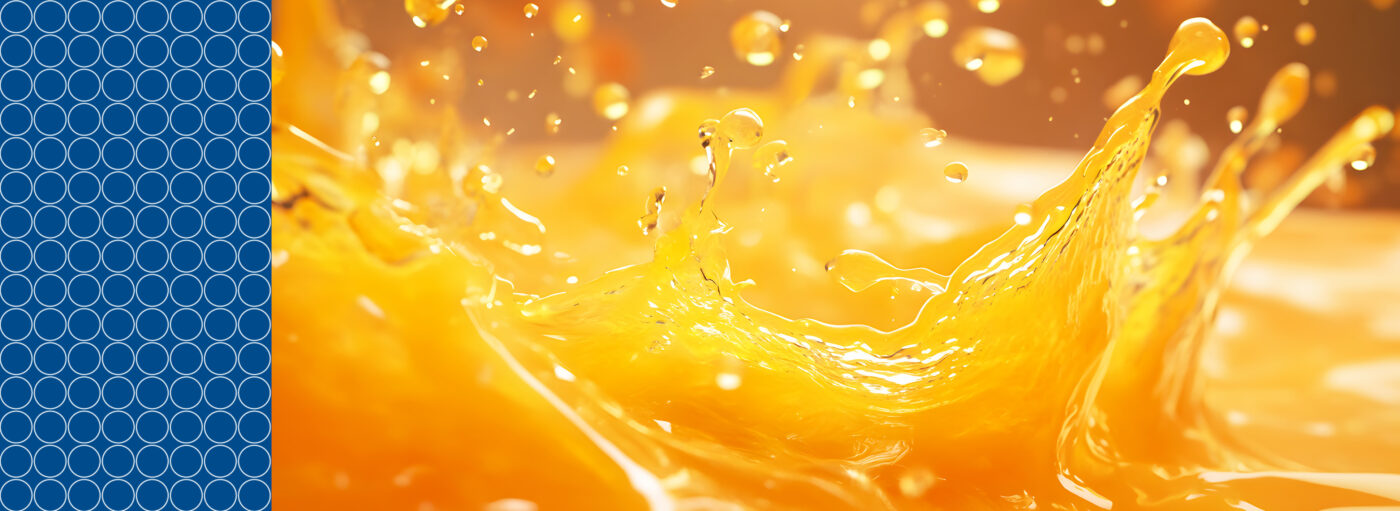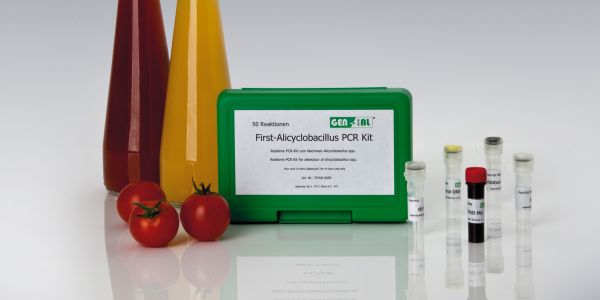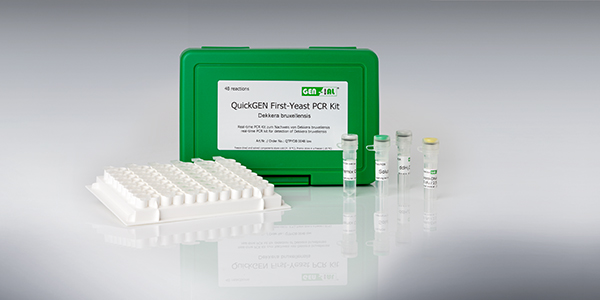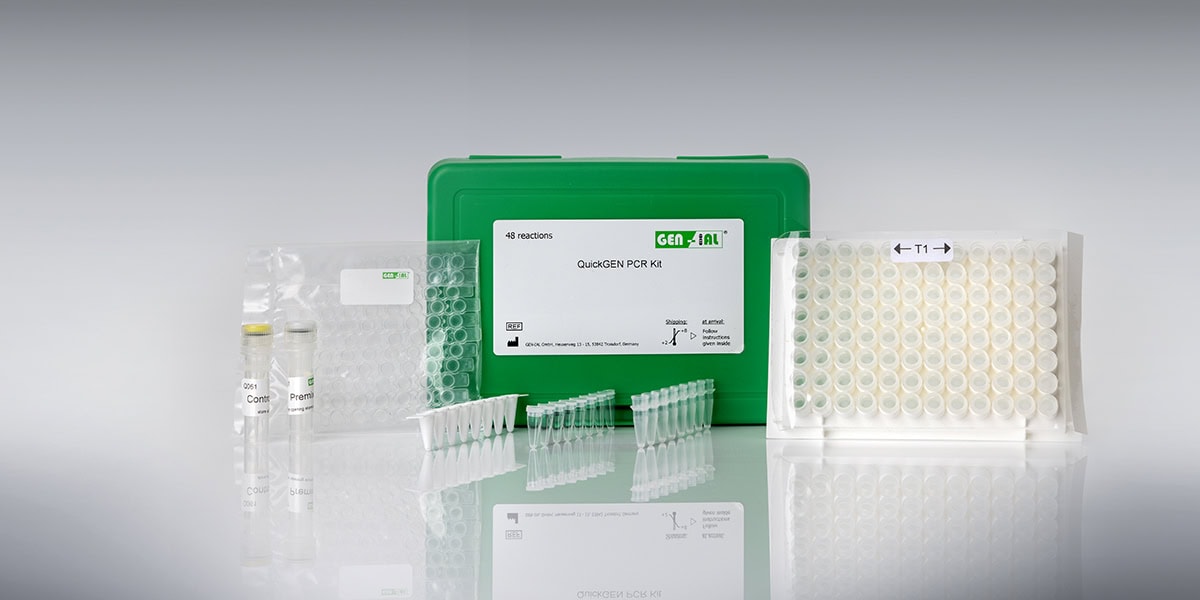
Recent news in Food & Feed Analysis
- Home
- /
- Microbial spoilage in juices...
Microbial spoilage in juices and soft drinks: Detecting key spoilers with GEN-IAL® real time PCR kits

In the beverage industry, particularly in the production of fruit juices and soft drinks, microbial contamination poses considerable challenges to product quality and shelf life. While strict hygiene protocols and pasteurization processes aim to mitigate contamination, certain resilient microorganisms, such as molds, yeasts & bacteria, continue to present issues. Among these, Alicyclobacillus species, yeasts, and more specifically e.g. Zygosaccharomyces bailii or Zygosaccharomyces rouxii, have been identified as major problems. Their (early) detection and control are challenging and critical for producers to maintain product integrity.
Major Spoilage Microorganisms in Beverages
The type of microorganism present can originate from the fruits / raw materials themselves, but also other sources like added water, flavorings or chemicals as well as failure in the pasteurization process or deficient hygiene protocols.
Alicyclobacillus
One of the most notorious spoilage bacteria in the beverage industry is Alicyclobacillus, particularly Alicyclobacillus acidoterrestris. These spore-forming bacteria are heat-resistant and can survive the pasteurization processes and are found to spoil the ice tea, lemonade, isotonic water, and fruit juices. Even low concentrations of Alicyclobacillus can lead to spoilage by producing off-flavors, commonly described as a medicinal or smoky taste, caused by guaiacol and other phenolic compounds. These bacteria thrive in acidic environments, making fruit juices a favorable medium for their growth.
Yeast Contamination
Yeasts are another significant concern for producers, as they can ferment sugars, leading to carbon dioxide and alcohol production, turbidity, and off-flavors. Yeasts are well-adapted to acidic environments, making them particularly prevalent in fruit-based beverages. General yeast spoilage is common in non-pasteurized or improperly sealed products. Besides Saccharomyces cerevisiae, two species also stand out as primary troublemakers throughout the production process:
Zygosaccharomyces bailii: This yeast species is highly resistant to common beverage preservatives like benzoic and sorbic acids. It can grow in products with high sugar content, such as syrups and fruit juices, and withstand low pH levels, making it one of the toughest spoilers in the industry. Zygosaccharomyces bailii is known for its ability to form gas, leading to swollen or exploded packaging, making it a significant challenge for producers.
Zygosaccharomyces rouxii: While less notorious than Z. bailii, Zygosaccharomyces rouxii also presents a threat in high-sugar and low-water activity environments, such as fruit concentrates, flavored drinks, and syrups. It is particularly adept at surviving osmotic stress, allowing it to persist in products with low water activity, where many other microorganisms cannot survive.
Dekkera yeasts: These species may also spoil soft drinks. It grows slowly, and it will take many weeks to develop the symptoms of spoilage. This yeast is responsible for the formation of condensed sediments and clouds, which also oxidizes sugars into acetic acid.
Detection and prevention with real-time PCR
Early and accurate detection of these spoilage organisms is crucial to preventing product recalls and maintaining consumer trust. Traditional culture-based methods are time-consuming and may fail to detect sub-lethal populations of microorganisms.
Our GEN-IAL real-time PCR detection kits offer a fast, reliable, and sensitive method to detect spoilage microorganisms, including Alicyclobacillus and spoilage yeasts like Zygosaccharomyces bailii, Zygosaccharomyces rouxii or Dekkera spp.
Benefits of GEN-IAL® real-time PCR detection kits include:
Ease of use: Lyophilized tubes allow effortless & efficient PCR set-up. Kit-specific templates permit a quick start of the analysis without any programming in advance
Comprehensive Coverage: Tailored for key spoilage organisms in the fruit juice and soft drink industry
Practical: Multiplex kits and precoated PCR tubes
Open system: Different qPCR tube formats available
Learn more about our kits:
GEN-IAL® QuickGEN Alicyclobacillus differentiation
GEN-IAL® QuickGEN Yeast Zygosaccharomyces bailii low
GEN-IAL® QuickGEN PCR Kit Zygosaccharomyces rouxii
GEN-IAL® QuickGEN Yeast Dekkera spp.
In conclusion, spoilage microorganisms like bacteriaand yeast represent significant risks to the beverage industry. Their ability to survive harsh conditions, including low pH and high sugar concentrations, makes them persistent threats in juices and soft drinks. However, with real-time PCR detection kits, producers and testing labs have access to effective tools for rapid and accurate spoilage detection.
For more information also visit: https://food.r-biopharm.com/analytes/microbiology/



